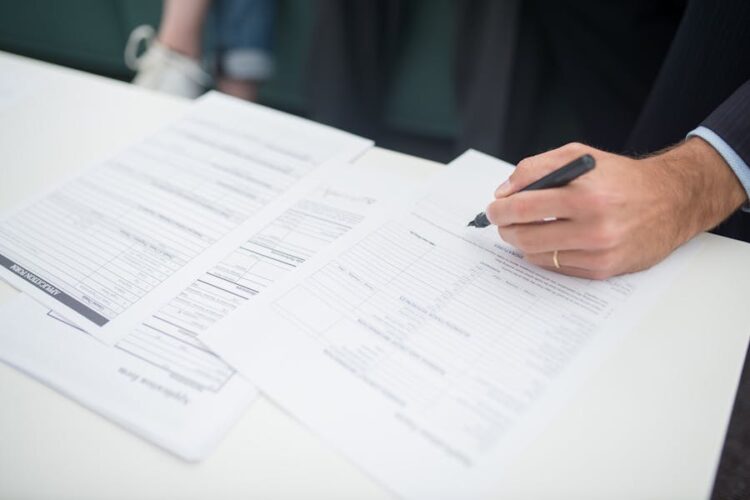Have you ever seen flashing lights in your rearview mirror and felt your heart race, even if you did nothing wrong? You’re not alone. Every day, drivers across the U.S., including in cities like Phoenix, AZ, are pulled over for traffic violations. While many stops are routine, some can lead to serious legal consequences.
In this blog, we will share what happens from the roadside to the courtroom, guiding you through each part of the legal journey in clear and simple terms.
Understanding Traffic Stops
A traffic stop starts when a police officer sees a driver breaking a law, such as speeding, running a red light, or swerving. The officer uses flashing lights or a siren to get the driver to pull over safely. Once the car stops, the officer approaches and asks for the driver’s license, registration, and proof of insurance.
If the officer suspects more than just a traffic violation—like the smell of alcohol or signs of drug use—they may investigate further. This could include a field sobriety test or a search of the vehicle. A driver’s behavior, honesty, and cooperation can affect how the officer responds.
Being Arrested or Summoned
If the officer believes a serious offense occurred—like drunk driving or driving without a license—they may arrest the driver. Arrest means the person is taken to a police station, booked, and held in custody. The process includes fingerprinting, taking a photo, and possibly staying in jail until bail is posted or a judge makes a decision. People arrested have the right to remain silent and ask for a lawyer.
In less serious cases, the officer may give a citation or summons. This is a written order to appear in court on a set date. For example, someone caught driving under the influence in Phoenix might be told to appear in court, even if they aren’t taken to jail. In such cases, working with a qualified DUI attorney in Phoenix, AZ can make a major difference. A local lawyer understands state laws and court procedures, helping clients build a strong defense and avoid harsh penalties.
Booking and Bail
After an arrest, the booking process formally records the person’s details and the reason for the arrest. Police collect basic information like name, age, and address. They also check for past records or outstanding warrants. Depending on the charge, the person might stay in jail or be allowed to post bail, which is money paid as a promise to return for court.
Bail isn’t guaranteed for all cases. A judge reviews the facts to decide if the person is likely to appear in court or pose a danger to others. If granted, bail may be paid directly or through a bail bondsman. People who can’t afford bail might stay in jail until their court date. In either case, having a lawyer helps with making bail arguments and preparing for the next steps.
Court Arraignment
The arraignment is usually the first time a person appears before a judge. This hearing confirms the charges and gives the accused a chance to plead guilty, not guilty, or no contest. The judge reads the charges aloud, explains rights, and may discuss bail again. A lawyer can speak on the person’s behalf and may request more time to review the case.
If the person pleads not guilty, the case moves forward, and future court dates are scheduled. The judge may set conditions like attending counseling, staying away from certain places, or checking in regularly. Pleading guilty or no contest can lead to immediate sentencing. It’s important to understand the impact of each choice, which is why legal advice at this stage is critical.
Legal Representation and Defense
Once charges are filed, a defense begins. People have the right to hire a private attorney or request a public defender if they can’t afford one. Lawyers review the arrest details, police reports, and any video or witness statements. They look for mistakes, violations of rights, or unclear evidence that could weaken the case.
Defense strategies vary. Sometimes, a lawyer might argue the officer didn’t have a valid reason to stop the driver. Other times, they may challenge test results or question how evidence was handled. In many cases, lawyers try to negotiate with prosecutors for reduced charges or lighter sentences. Having someone who knows the legal system can change the outcome and reduce stress for the person involved.
Pretrial Hearings and Plea Deals
Before a trial, courts hold hearings to discuss the case’s progress. These hearings allow lawyers to file motions, request evidence, or ask for certain charges to be dropped. Judges also decide on deadlines and court rules. Both sides—the defense and the prosecution—use this time to prepare their arguments and gather support for their positions.
Many criminal cases end in a plea deal instead of going to trial. A plea deal is an agreement where the accused pleads guilty to a lesser charge to receive a lighter sentence. This saves time and avoids the uncertainty of a trial. However, it’s not always the best option. A lawyer helps weigh the pros and cons, making sure the person understands the long-term effects of their decision.
Trial Process
If no deal is reached, the case goes to trial. A trial may be held before a judge or a jury. The prosecution presents evidence to prove the person’s guilt beyond a reasonable doubt. This can include police testimony, video footage, lab results, and witness accounts. The defense then presents its side, offering reasons to doubt the evidence or telling the accused’s version of events.
Trials follow strict rules. Lawyers ask questions, raise objections, and give closing statements. The judge or jury then decides on guilt. If found guilty, the next step is sentencing. If found not guilty, the person is free to go. Trials can be stressful and emotional, but they offer a chance for the accused to tell their side and challenge unfair accusations.
In conclusion, legal troubles often begin in the blink of an eye—a missed signal, a wrong turn, or a mistake in judgment. But the path that follows can be long and challenging. From a routine traffic stop to a courtroom trial, every step matters. Knowing what to expect and having proper guidance can help people protect their rights and make smart choices. Laws may be complex, but staying informed and prepared makes a big difference. Whether you’re facing a ticket or more serious charges, always remember that the legal system has steps and support to help you move forward wisely.










